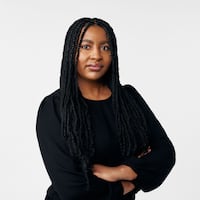As citizens across metro Atlanta struggle to cope with another violent summer — and another July 4 holiday that resulted in a youth’s death — local law enforcement leaders on Tuesday discussed what they believe is exacerbating the problem.
To Atlanta police Chief Rodney Bryant, the locations where crimes are happening most frequently tell a troubling story. Bryant — who came out of retirement to accept the chief’s role after serving on the force for 31 years — said during a roundtable radio discussion on KISS 104.1 that the recent uptick mirrors patterns that he’s seen before.
“In 1996, crime was through the roof,” he told radio host Frank Ski. “But if you take that and fast forward and look at those maps, (today’s incidents) are in the exact same places that they were in 1996, letting me know that there are systematic issues that really need to be addressed.”
Bryant was joined in the discussion by Fulton County Sheriff Pat Labat, Gwinnett County Sheriff Keybo Taylor and DeKalb County Sheriff Melody Maddox, who said they attribute the recent crime wave to an inability to appropriately settle interpersonal conflicts paired with a lack of school and community initiatives to help prevent young people from entering the criminal justice system.
“Now, the first thing you do is go to a gun. It’s just so easy for people to go get a gun and it’s done,” Maddox said. “But now you have to deal with the consequences.”
The roundtable came in the wake of a shooting that killed a 14-year-old boy and injured two other teenagers during a massive melee over the holiday weekend. Atlanta police said nearly 50 teens were present when the brawl broke out on McAfee Street on July 3, and several were running away from the location when police arrived.
As officers worked to clear the scene, they found the 14-year-old unresponsive with a gunshot wound. He was taken to Grady Memorial Hospital, where he died of his injuries.
The two other teens were taken to Children’s Healthcare of Atlanta at Egleston with minor injuries.
While it is not clear what started the brawl or what led to the fatal shooting, the incident happened as the city was already aching from the one-year anniversary of 8-year-old Secoriea Turner’s death. The girl was shot and killed in Atlanta on July 4, 2020, when someone fired into the Jeep she and her mother were riding in.
She was one of 157 victims to die by homicide in Atlanta last year — the most in more than two decades. Data shows Atlanta police have investigated 73 homicides this year, a 45% increase from this time last year.
“It’s not right,” Bryant said. “I mean, we all know that. A 14-year-old being killed on the street — there is a problem there. There is a problem that we have to look at holistically to address.”
Bryant said a lack of early intervention in schools is a factor in the increase in crime, as it leaves young people open to negative influences and discomforting interactions with police. Taylor agreed, adding that the structured curriculum of those school programs “could change a kid’s mindset.”
“If you had 10 kids, you might be able to change the mindset of six,” he said. “That’s six kids that you don’t have to deal with moving through the juvenile system committing crimes, or as adults.”
Labat said he believes it is the job of law enforcement officers to “extend an olive branch so that we can begin to heal our community.”
However, eliminating the problem at its core falls on the shoulders of more people than law enforcement officers, the leaders agreed.
“We can’t do this alone,” Maddox said. “I’m not going to try to do it alone. This is something that takes the community, and it takes a collective effort.”
About the Author
The Latest
Featured

